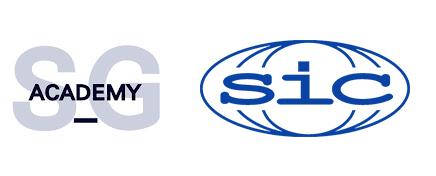Quality management system manager for testing and calibration laboratories (ISO/IEC 17025)
This online course allows you to gain the necessary knowledge about the requirements for testing laboratories, which are based on the quality management model, taking into account the specifics of metrological organizations.
The international standard ISO/IEC 17025:2017 is the main standard used by testing and calibration laboratories.
Training participants will gain knowledge about various components of the quality management system (QMS) according to ISO/IEC 17025:2017, including the following: general requirements for testing and calibration laboratories, requirements for the structure, resources, testing process, and management system.
Duration
18 hours
Language
English/Ukrainian/Russian
Format
100% online
Objectives
• Understand the implementation principles of ISO/IEC 17025:2017
• Get an idea of the concepts, approaches, methods and techniques necessary to effectively manage a testing/calibration laboratory
• Gain knowledge in identifying risks and opportunities associated with laboratory activities
• Understand the principles of impartiality and confidentiality towards laboratory stakeholders
• Get familiar with the structure of the testing/calibration laboratory
• Gain the necessary knowledge in accordance with the laboratory management system
Target audience
• Heads of structural divisions of laboratories
• Consultants who wish to master the QMS implementation and operation processes in laboratories
• Members of the QMS implementation team at the enterprise
• Professionals who wish to gain in-depth knowledge of laboratory QMS
• Specialists involved in daily maintenance of QMS processes
• Students of specialized faculties
Document on completion
Quality manager certificate of the testing/calibration laboratory, listed in the SIC international register
Evaluation scale
60.0-100.0
0.0-59.9
Complies
Does not comply
Thematic plan
The course program includes 1 module:
1. General requirements for the competence of testing and calibration laboratories (ISO/IEC 17025:2017)
The program is designed for 18 hours, including time for studying theoretical material and taking tests.
Objectives
Module 1 General requirements for the competence of testing and calibration laboratories (ISO/IEC 17025:2017)
Number of hours
|
1.1 |
Introduction |
1,0 |
|
1.2 |
General provisions of the standard |
1,0 |
|
1.3 |
General requirements of the standard |
1,0 |
|
1.4 |
Structural requirements |
1,0 |
|
1.5 |
Resource requirements |
3,0 |
|
1.6 |
Process requirements |
5,0 |
|
1.7 |
Management system requirements |
5,0 |
|
|
Testing |
1,0 |
Detailed content of the program Module 1 General requirements for the competence of testing and calibration laboratories (ISO/IEC 17025:2017)
|
1.1 |
Introduction: – General – Versions and revisions of the standard – Connection with ISO 9001 – Benefits of implementing the standard |
|
1.2 |
General provisions of the standard: – Framework of the standard – Scope of the standard – Terminology |
|
1.3 |
General requirements of the standard: – Impartiality – Confidentiality |
|
1.4 |
Structural requirements: – Example of implementing and documenting requirements |
|
1.5
|
Resource requirements: – Personnel – Infrastructure – Equipment – Metrological traceability – Externally provided products and services |
|
1.6 |
Process requirements: – Review of requests, tenders and contracts – Selection, verification and validation of methods – Sampling – Handling of test and calibration items – Technical records – Evaluation of measurement uncertainty – Ensuring the validity of results – Reporting of results – Complaints – Nonconforming work – Control of data and information management |
|
1.7
|
Management system requirements: – Options – MS documentation – Control of MS documents – Control of records – Actions to address risks and opportunities – Improvement – Corrective actions – Internal audits – Management reviews |
